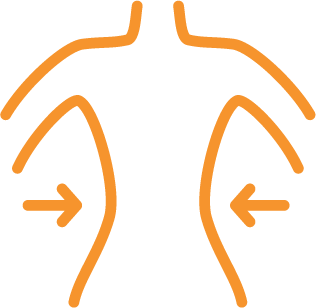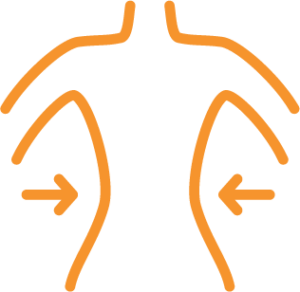When one of your organs or some of your fatty tissue protrudes through the muscle wall, a hernia occurs. Hernias typically develop in your abdominal wall or groin and can affect men, women, and children.
Hernias aren’t usually life-threatening, but they can become strangulated and get cut off from their blood supply. Although it’s rate, a strangulated hernia is a medical emergency.
Dr. Billing provides minimally invasive laparoscopic surgery to repair your hernia. During the procedure, he skillfully tucks the bulging tissue or organ back into its original position and places a piece of surgical-grade mesh to bolster and support the weak area.

What is a hernia?
When one of your organs or some of your fatty tissue protrudes through the muscle wall, a hernia occurs. Hernias typically develop in your abdominal wall or groin and can affect men, women, and children.
Hernias aren’t usually life-threatening, but they can become strangulated and get cut off from their blood supply. Though it is rare, a strangulated hernia is a medical emergency.
How do I know if I have a hernia?
It’s possible that your hernia doesn’t cause any symptoms, but these are some of the most common signs you may have one:
- Abdominal distension
- Pain in your groin or abdomen
- Nausea
- Persistent acid reflux
- Heaviness in your groin
- Pain in your abdomen or groin when straining
Dr. Billing performs a thorough physical exam to confirm the hernia diagnosis and write a custom plan for treatment.
What are the types of hernias?
Common types of abdominal hernias include:
- Hiatal: in the diaphragm
- Inguinal: in the groin
- Umbilical: in the belly button
Hernias can also develop after a surgical procedure has weakened your abdominal walls, though this type of hernia is very rare.
How is a hernia treated?
Dr. Billing provides minimally invasive laparoscopic surgery to repair your hernia. During the repair surgery, he skillfully tucks the bulging tissue or organ back into its original position and places a piece of surgical-grade mesh to bolster and support the weak area.
Following your surgery, the team supplies you with aftercare instructions and advises you not to lift anything heavy for a few weeks.
What is hernia mesh removal?
If you’ve had inguinal hernia surgery in the past and still have pain in the area, it’s possible that your hernia mesh is causing the problem. Mesh doesn’t often cause a problem, but it’s possible that it can become infected or be the culprit of ongoing pain.
Hernia mesh removal is an advanced procedure that Dr. Billing proudly provides at Transform Weight Loss. With more than 20 years of experience in innovative surgical techniques, he safely extracts and discards the failing mesh.
For comprehensive help with a hernia or mesh removal, call the office to book a meeting with Dr. Billing or use the online scheduling tool.




